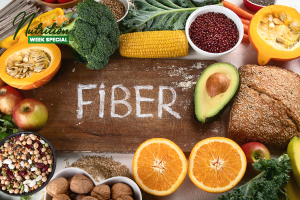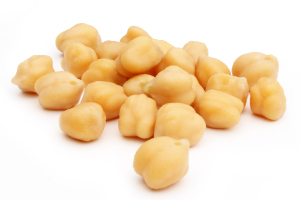

Proteins, fats, and carbohydrates in food items are the three major macronutrients required by the body in large amounts. Intake of macronutrients in the right proportions is essential for your body to gain energy in order to function properly on a daily basis. Carbohydrates in food items are processed into glucose that is absorbed in the bloodstream to fuel your body with energy. Glucose is either used immediately or stored in the muscles and liver for the body to utilize later.
A diet deficient in carbohydrates may cause hypoglycemia or low blood sugar level, whereas excess of carbohydrates in your diet may cause hyperglycemia or high blood sugar levels. Therefore it is important to incorporate balanced amount of healthy carbohydrate foods into your diet to reap maximum nutrition benefits.
Types of Carbohydrates in Food Items
Carbohydrates in food items can be broadly categorized into two types based on the structure of their molecule: simple and complex.
- Simple Carbohydrates (Refined Carbs): Simple carbohydrates are easily digested and absorbed by the body, making them the quickest energy source. The glucose processed in a short amount of time provides instant energy to the body and the excess is stored in the form of fat. Simple carbohydrates have high glycemic load and therefore, consuming high amounts of simple carbohydrates may result in weight gain.
- Complex Carbohydrates (Whole Carbs): As the name suggests, complex carbohydrates have complex molecular structure and therefore take longer to digest. They are a slower but long-term source of energy in comparison with simple carbohydrates. Complex carbohydrates have a low glycemic load and are considered healthy carbohydrate foods as compared to simple carbohydrates. That is because they gradually increase the sugar levels in the blood and are therefore more helpful for people suffering from diabetes in the management of the blood sugar levels.
There are three types of Carbohydrates in food items based on their functions in our body: sugars, starches, and fibres:
- Sugars: Sugars are a processed form of carbohydrates and are a type of simple carbohydrates. Consumption of sugars may boost energy levels instantly but the same is usually followed by a phase of feeling tired. These should be consumed in limited quantities since unhealthy consumption may lead to a range of issues, including weight gain, insulin imbalance, increased risk of heart disease, and so on. Simple examples of carbohydrates food sources can include natural (fruits, vegetables) as well as added forms (candies, sodas, ice creams) of sugars.
- Fibre: Fibres are a type of complex carbohydrates that are found in plant-based products. Some good examples of carbohydrates food rich in fibre include whole grains, nuts, fruits, vegetables, and legumes. A diet rich in fibre may help you maintain regular bowel movements, regulate blood sugar level, control cholesterol levels, and support weight loss.
- Starch: Another type of complex carbohydrates are starches. They consist of high amounts of simple sugars bonded together and therefore take more time to digest, providing energy for longer durations. They provide the required vitamins and minerals to your body. Carbohydrates in food items in the form of starches can be found in whole grains, vegetables, fruits, and legumes.
Sources of Carbohydrates in food items and Their Values
Items of foods rich in carbohydrates come in various forms and the ones high in healthy carbs are vital for our body to function and carry out routine tasks properly. The appropriate amounts of foods high in carbohydrates that must be consumed every day, however, depends upon the kinds of activities and individual requirements of each person.
Carbohydrates in food items can come from either plant-based or non-plant-based sources.
| Examples Of Carbohydrates Food Item | Portion Size | Value of Carbs (grams) |
| Breads, Grains and Pasta | ||
| Bread | 1 slice | 10-20 |
| Cornbread | 1 piece (deck of cards) | 30 |
| Cornmeal; all-purpose flour | 2 Tbsp | 12 |
| Croutons | ½ cup | 12 |
| Oatmeal | ½ cup | 12-15 |
| Pasta; rice | 1 cup | 45 |
| Pita bread | 6” to 9” pita | 30-45 |
| Tortilla flour | 6” tortilla | 12 |
| Tortilla corn | 6” tortilla | 15 |
| Nuts and Legumes | ||
| Beans (black, pinto, refried) and lentils | ½ cup | 18-22 |
| Hummus | ½ cup | 15-20 |
| Nuts | ½ cup | 15 |
| Starchy Vegetables | ||
| Corn on the Cob | 6” to 9” ear | 20-30 |
| Cooked Corn | ½ cup | 15 |
| Peas | ½ cup | 12 |
| Baked Potato | 1 medium (6 oz) | 40 |
| Mashed Potato | ½ cup | 15-20 |
| Sweet potato | 1 medium (5 oz) | 25 |
| Milk and Yoghurts | ||
| Almond milk | 1 cup | <1 |
| Cow milk; greek yoghurt | 1 cup | 12 |
| Soy milk | 1 cup | 3 |
| Regular yoghurt | 1 cup | 14 |
| Fruits | ||
| Apple | 1 medium (tennis ball) | 15-30 |
| Apricots | 7 pieces | 15 |
| Banana | 6”-9” | 30-45 |
| Blackberries, Blueberries | 1 cup | 20 |
| Cherries | 12 | 15 |
| Dates | 5-6 dates | 30 |
| Grapefruit | ½ large | 15 |
| Grapes | 15 | 15 |
| Kiwi | 1 small (egg) | 15 |
| Mango | ½ cup | 15 |
| Melons | 1 cup | 15 |
| Oranges | 1 medium | 15 |
| peaches | ½ cup | 15 |
| Pear | 6 oz | 20 |
| Pineapple | 1 cup, diced | 20 |
| Plum | 1 plum | 10 |
| Prunes | 3 prunes | 15 |
| Raisins | 2 Tbsp | 15 |
| Raspberries | 1 cup | 15 |
| Strawberries; watermelon | 1 cup | 12 |
| Snack Foods | ||
| Fries | Small order | 30 |
| Crackers | 3 squares | 15 |
| Popcorn | 3 cups | 15 |
| Potato chips | 1 oz (10-15 chips) | 15 |
| Tortilla chips | 1 oz (10-15 chips) | 20 |
| Sauces and Condiments | ||
| Barbeque sauce | 2 Tbsp | 15 |
| Fruit jam or jelly; Honey | 1 Tbsp | 15 |
| Ketchup | ¼ cup | 15 |
| Mayonnaise | 2 Tbsp | 5 |
| Peanut Butter | 2 Tbsp | 6 |
| Ranch | 2 Tbsp | 8 |
| Salsa | ¼ cup | 6 |
| Sugar | 1 Tbsp | 15 |
Benefits of Having Carbohydrates
Studies suggest that foods high in carbohydrates should form 45-65% of calories consumed by most adults. Along with proteins and fats, they form the perfect nutritional blend. Adding healthy carbohydrate foods to the daily diet can help reap the benefits of carbohydrates in many ways.
1. Act as a Fuel for the Body
The major function of carbohydrates is to act as a fuel for the body and provide & maintain the required energy levels. The glucose from carbs is converted to energy and is used to fulfill the body’s most immediate need for energy. Foods high in carbohydrates with higher nutritional value not only help the body physically but also help enhance cognitive functions. Having a meal rich in healthy carbohydrate foods can help overcome lethargy.
2. Control Weight
Consuming more fiber satiates your stomach, that is, it helps you feel full for longer durations. A low-carb diet or a ketogenic diet with predominance of unrefined carbs can be followed to lower the fluctuation of glucose levels and get rid of excess water from the stomach or intestine, thereby helping you lose weight quickly.
3. Aid Digestion
Majority of good carbohydrates in food items are loaded with fibre content. The digestive tract benefits from fibre since it fastens the entire process of digestion. Water absorbed by the fibre also helps maintain bowel health. Good carbs ensure faster and easier digestion as well as regulated bowel movements, which further reduces bloating.
4. Protect Against Diseases
Carbohydrates in food items have a direct effect on blood sugar levels, cholesterol, and other factors that affect chronic illnesses. The risk of heart disease and even stroke can be reduced via the consumption of whole grains and dietary fiber from whole foods. Food items that contain carbohydrates in unprocessed or unrefined forms, especially fibers, help control obesity and prevent colon cancers, rectal cancers, and even diabetes.
5. Sharpen Memory and Other Brain Functions
Consuming proper amounts of carbohydrates in food items along with other nutrients reduces brain fog and helps the brain focus better.
Conclusion
It is essential that you consume moderate amounts of healthy carbohydrate foods since an imbalance may lead to major consequences like chronic diseases including obesity, stroke, high cholesterol, high blood pressure, diabetes, and others. Some types of foods rich in carbohydrates are extremely beneficial for the body while some are not.
Along with the consumption of adequate carbohydrates in food items, other nutrients are important too. Hence a proper, well-balanced diet is important. To maintain overall health, proper activity sessions and proper sleep are important too.




